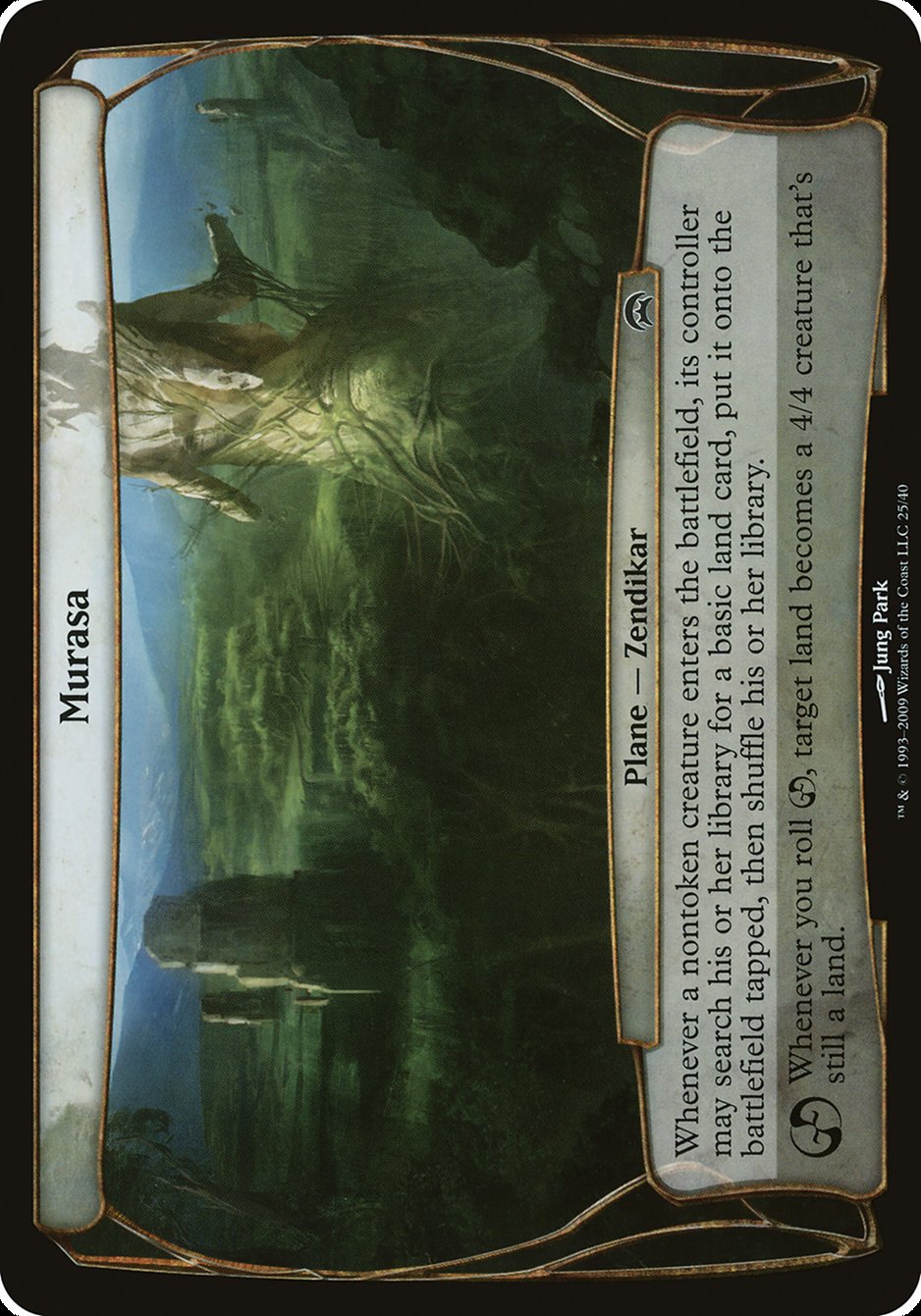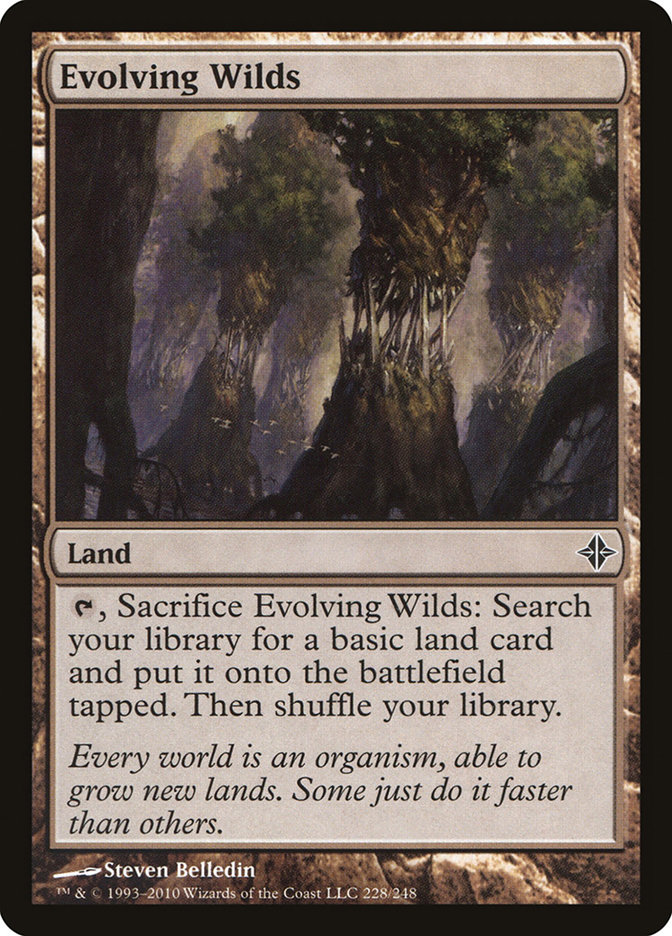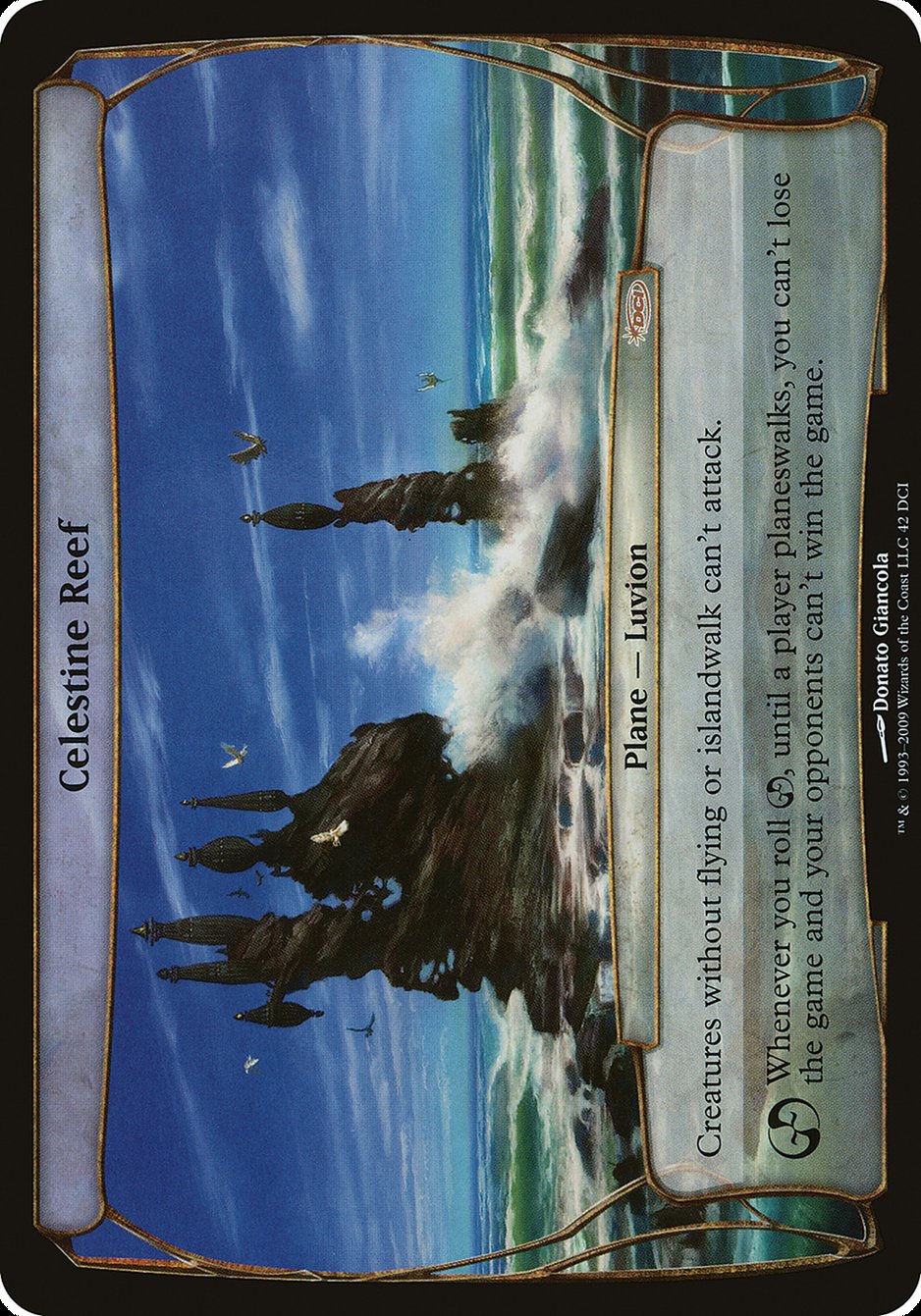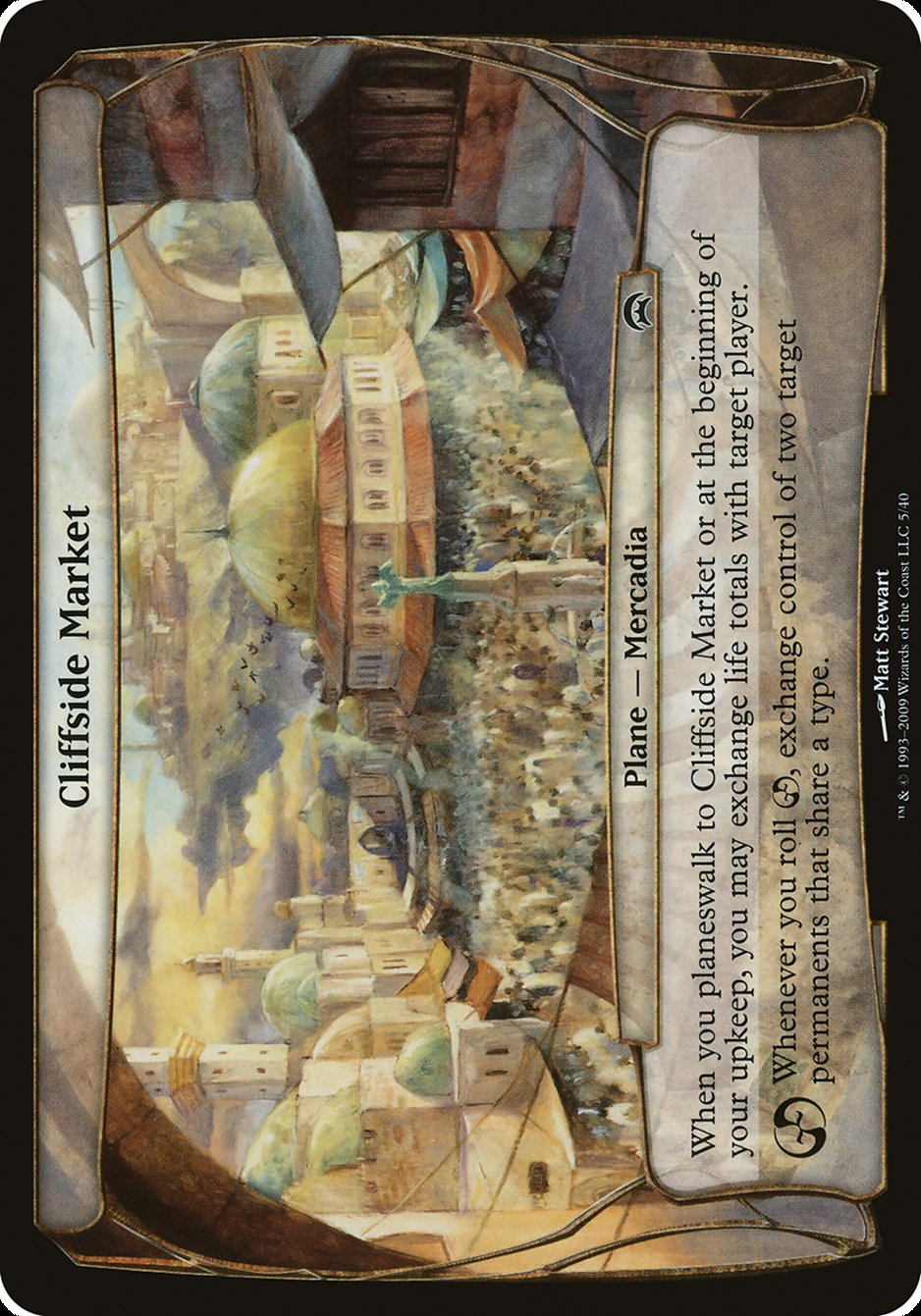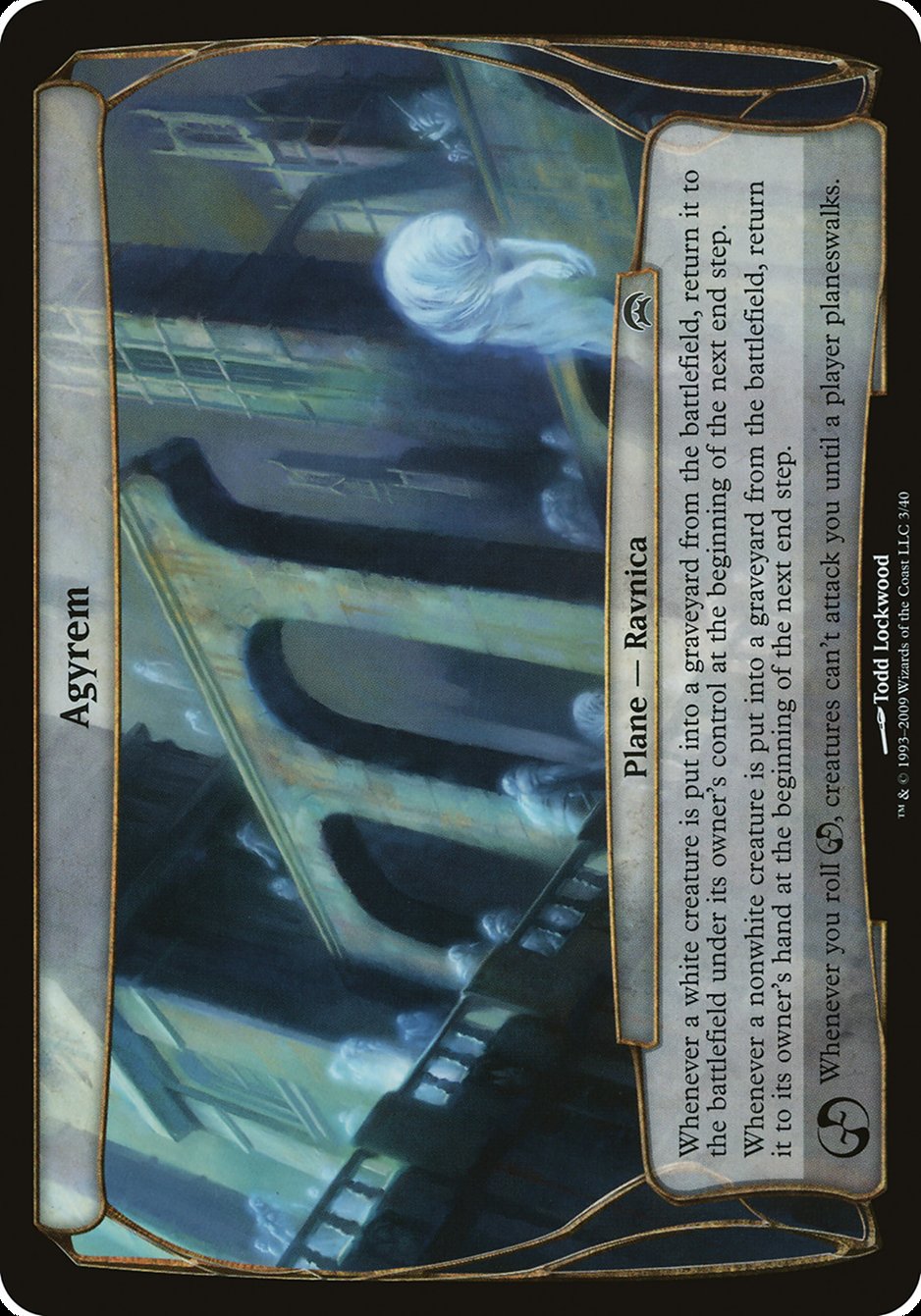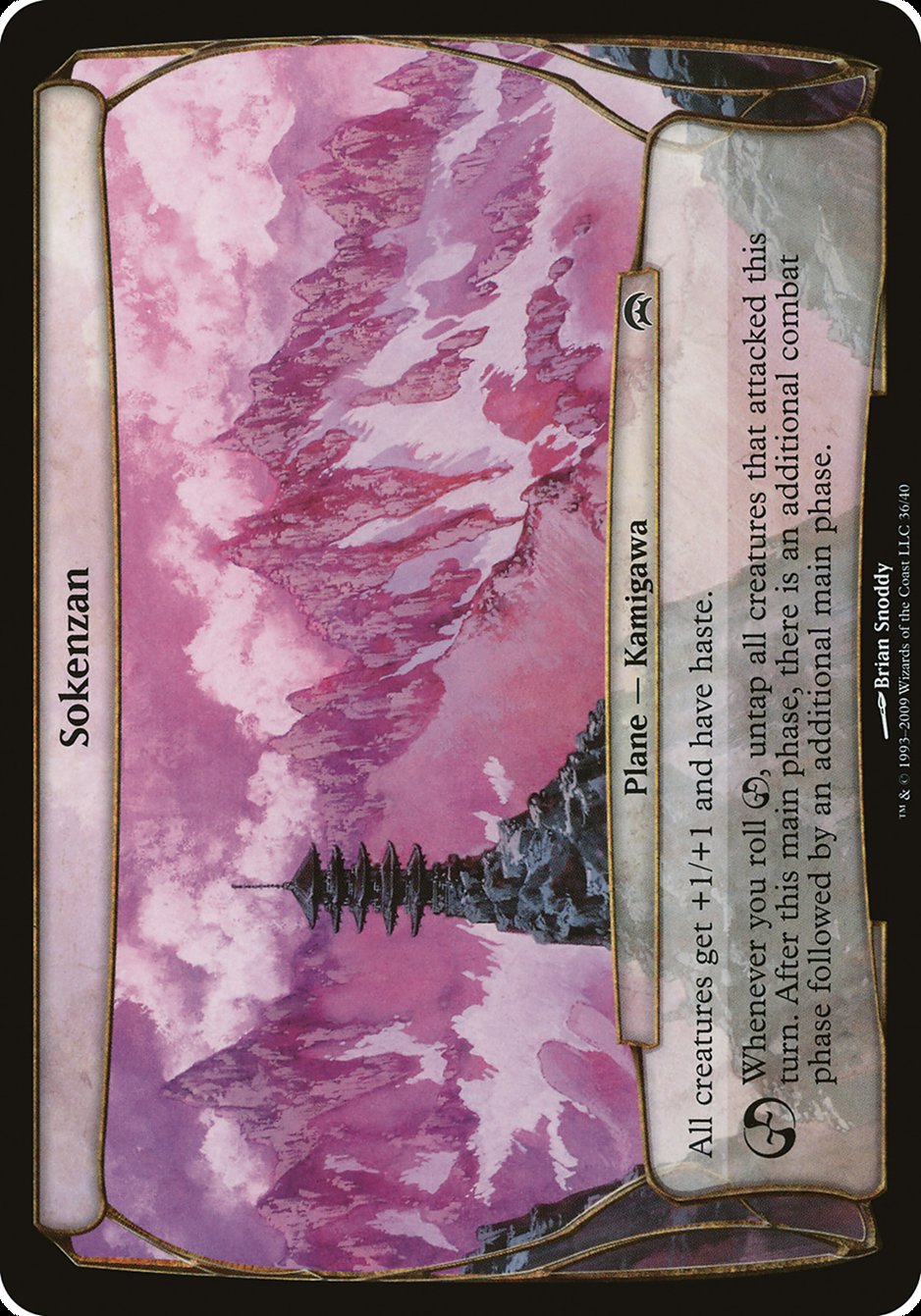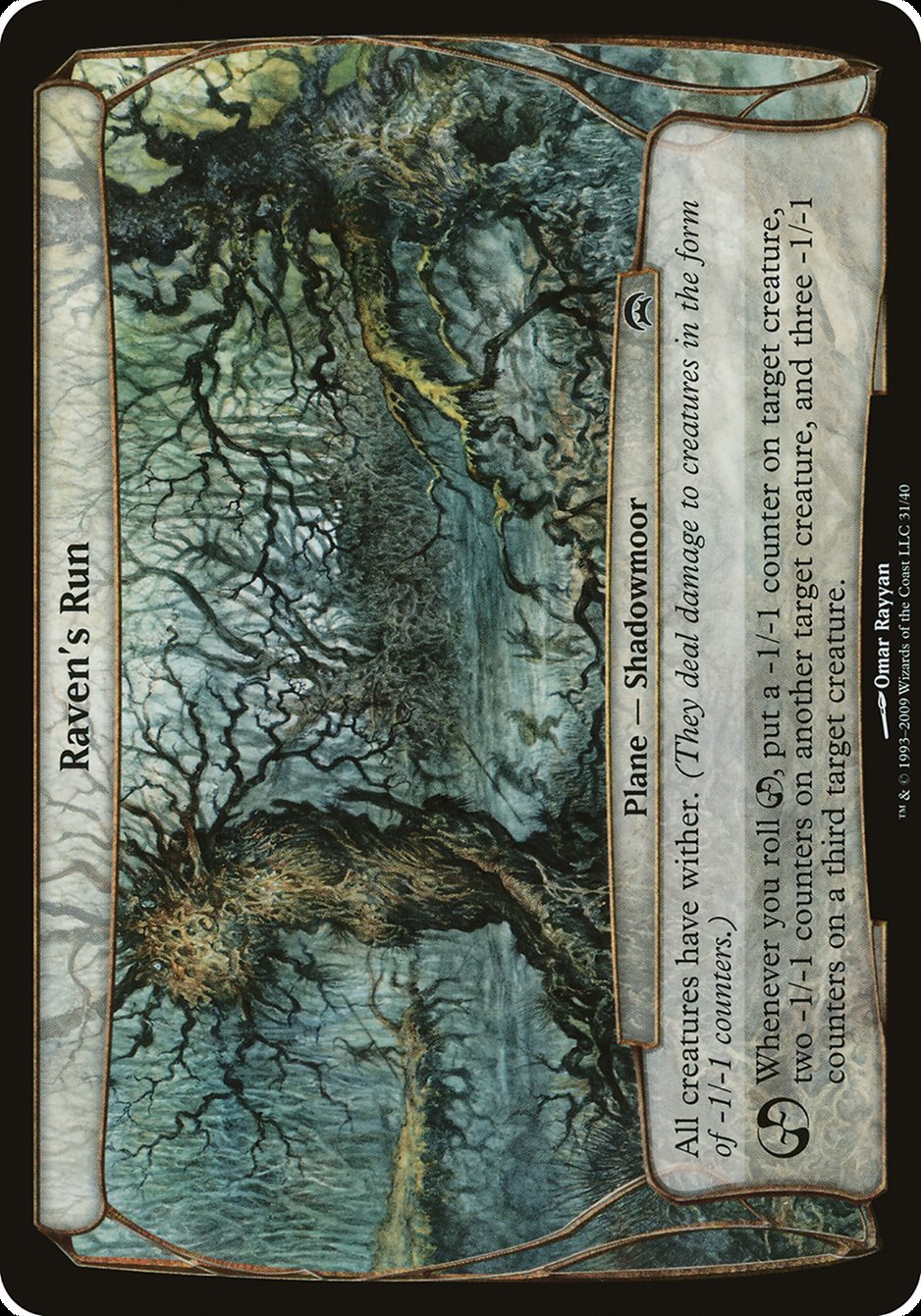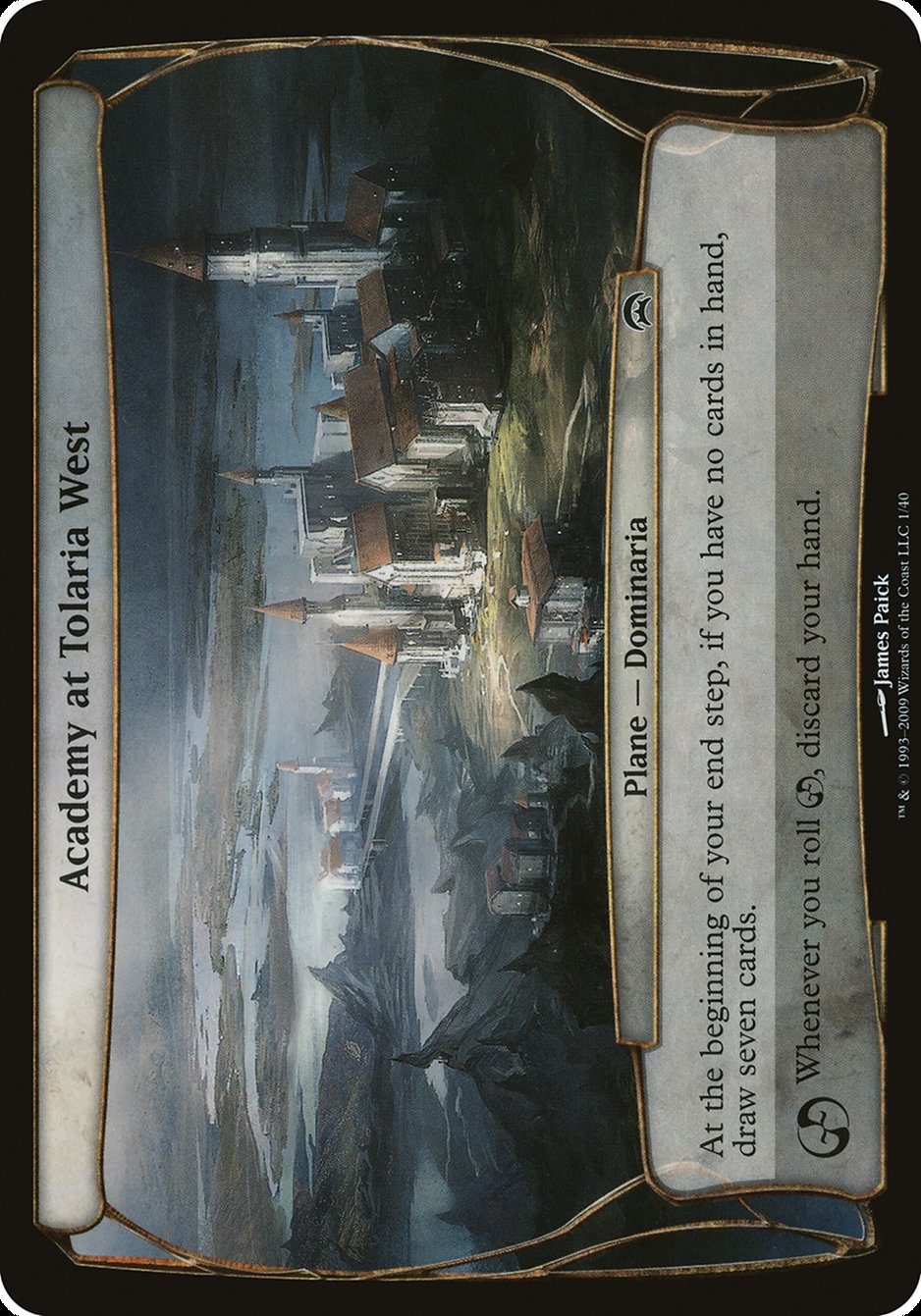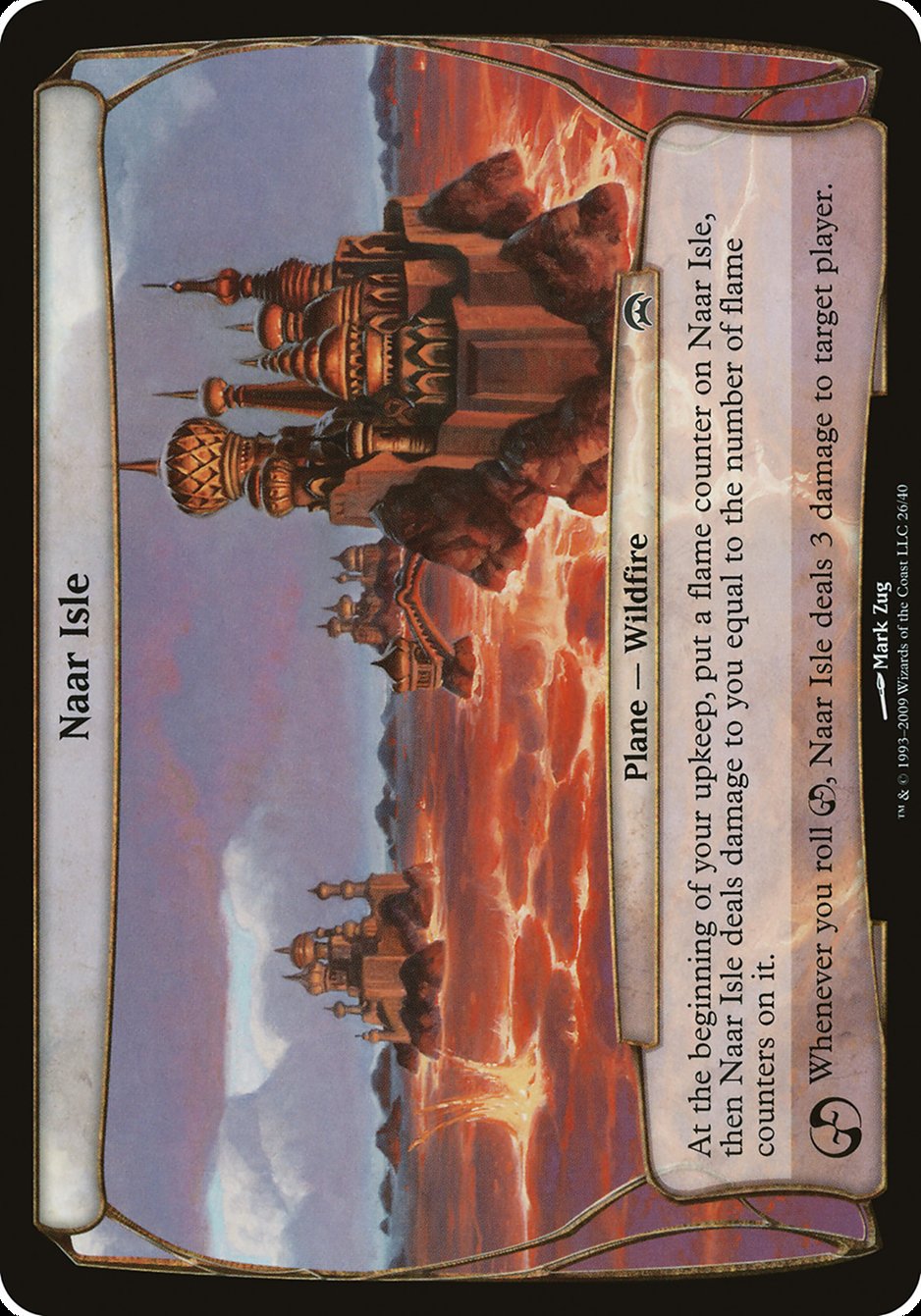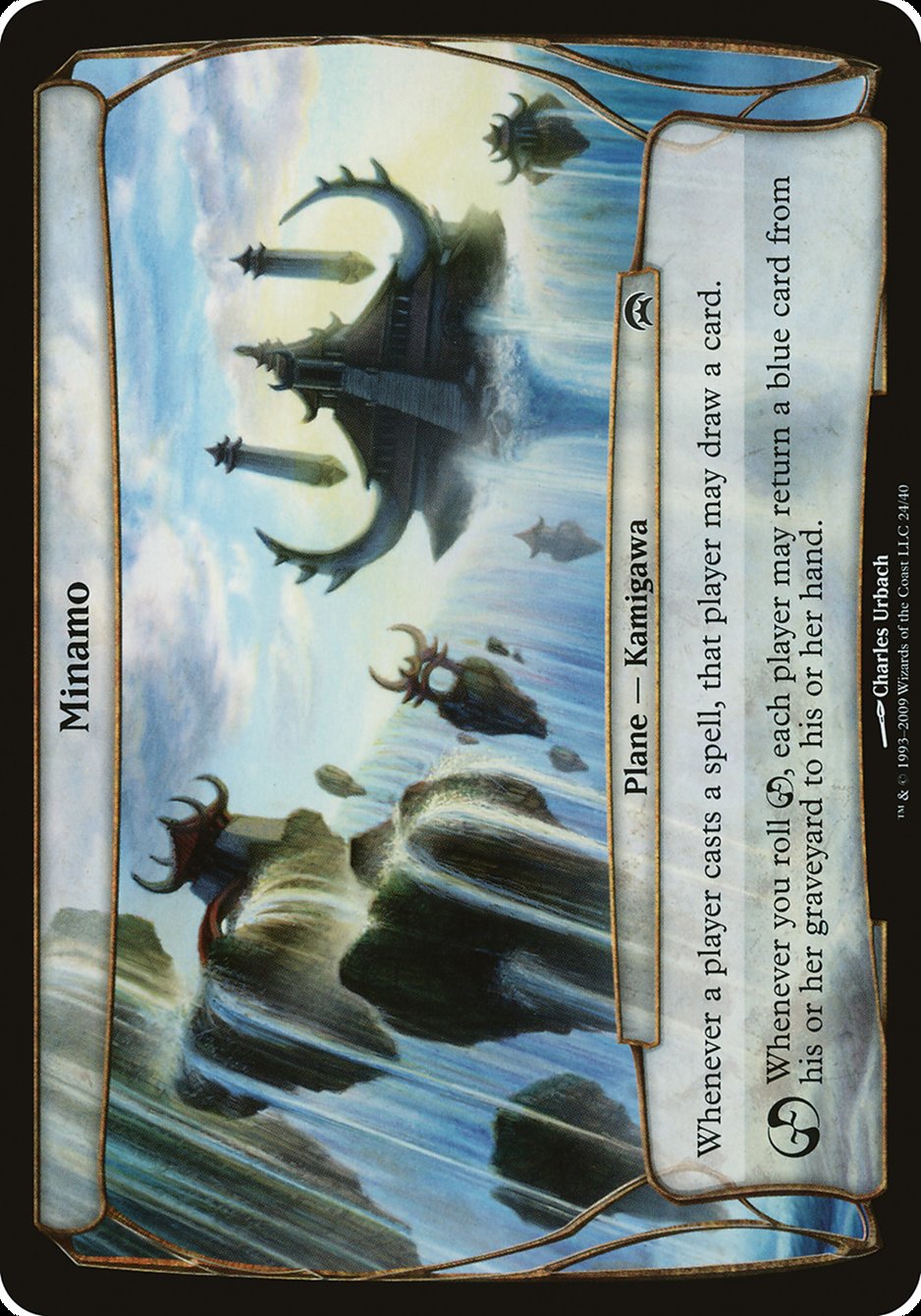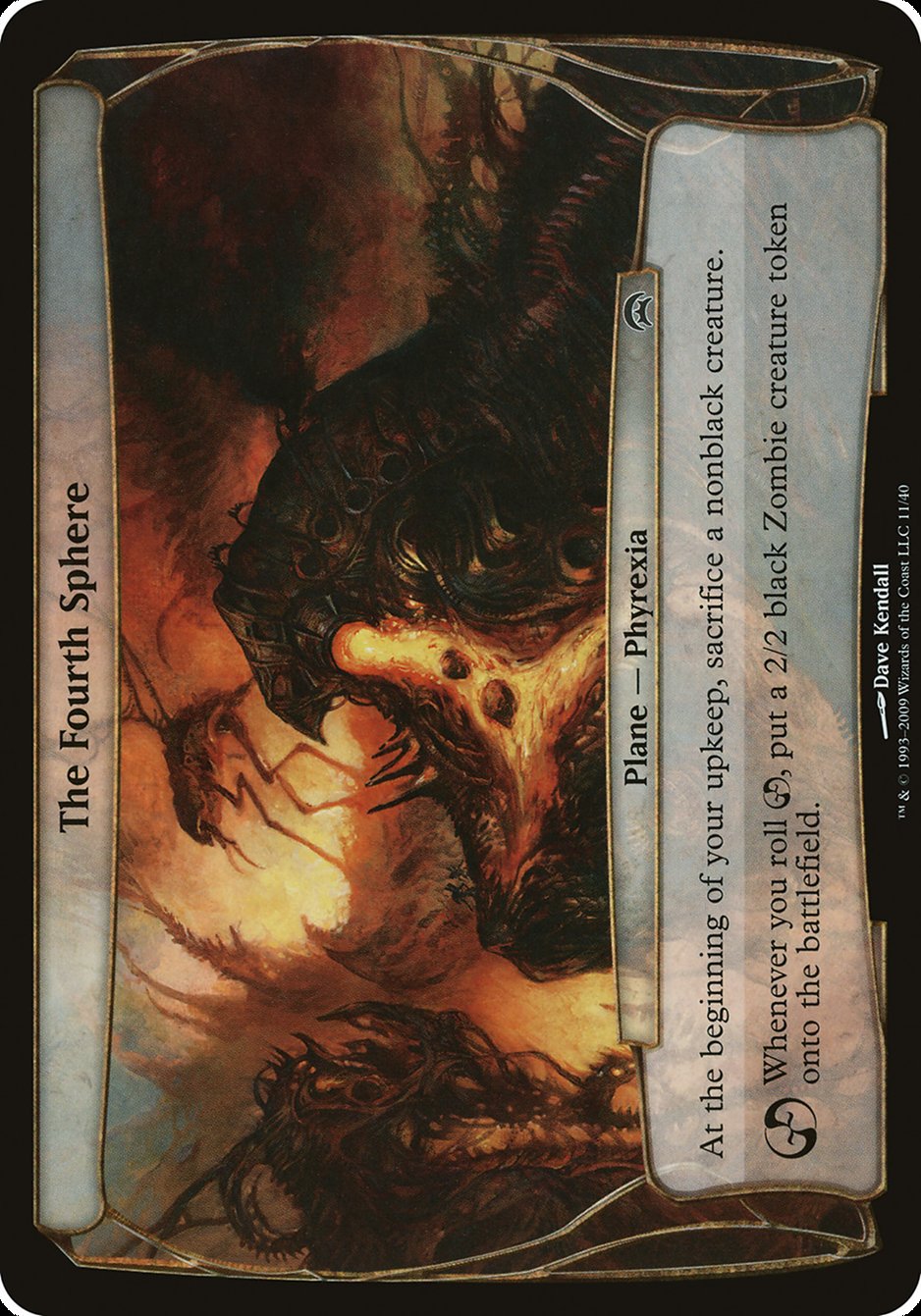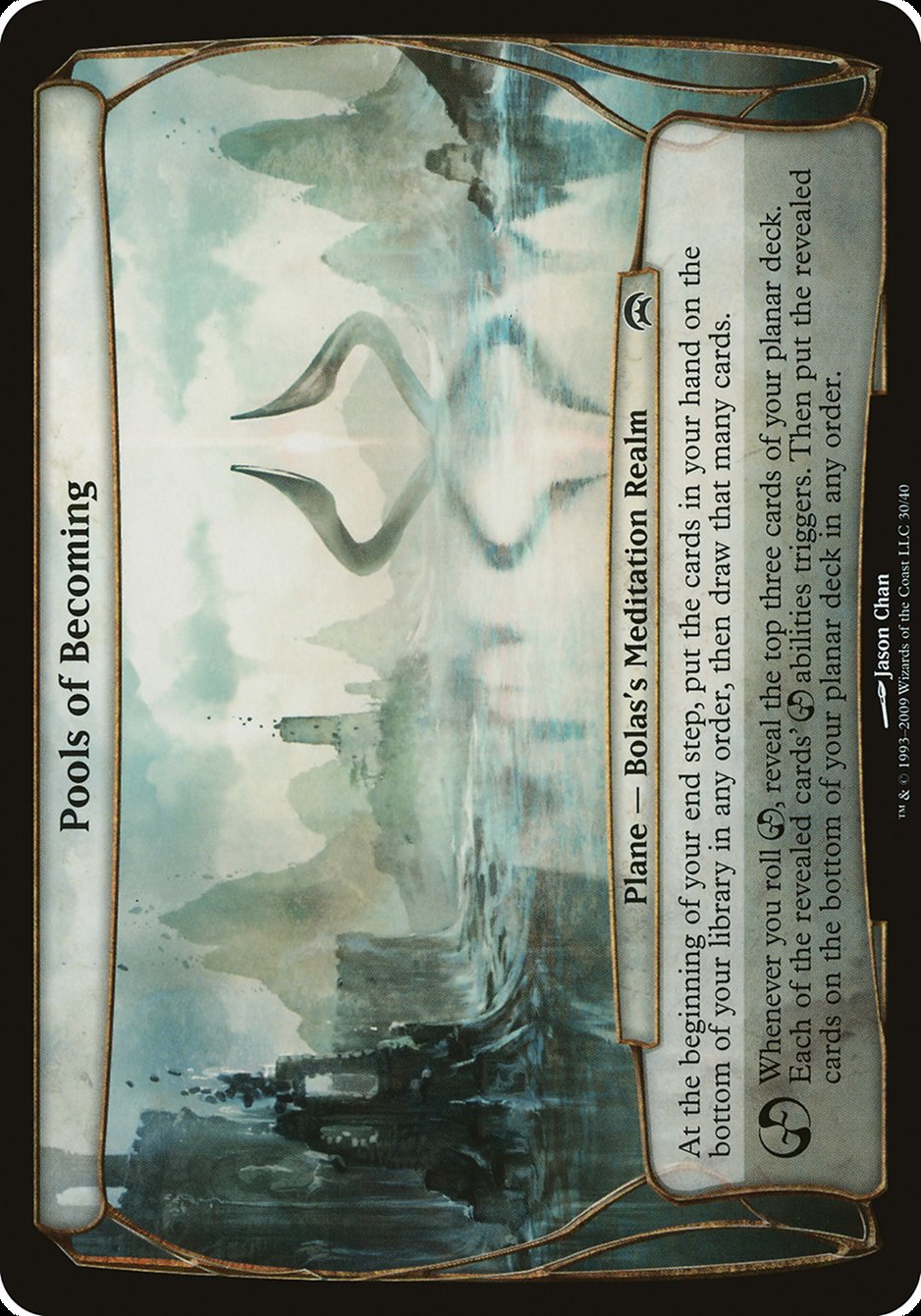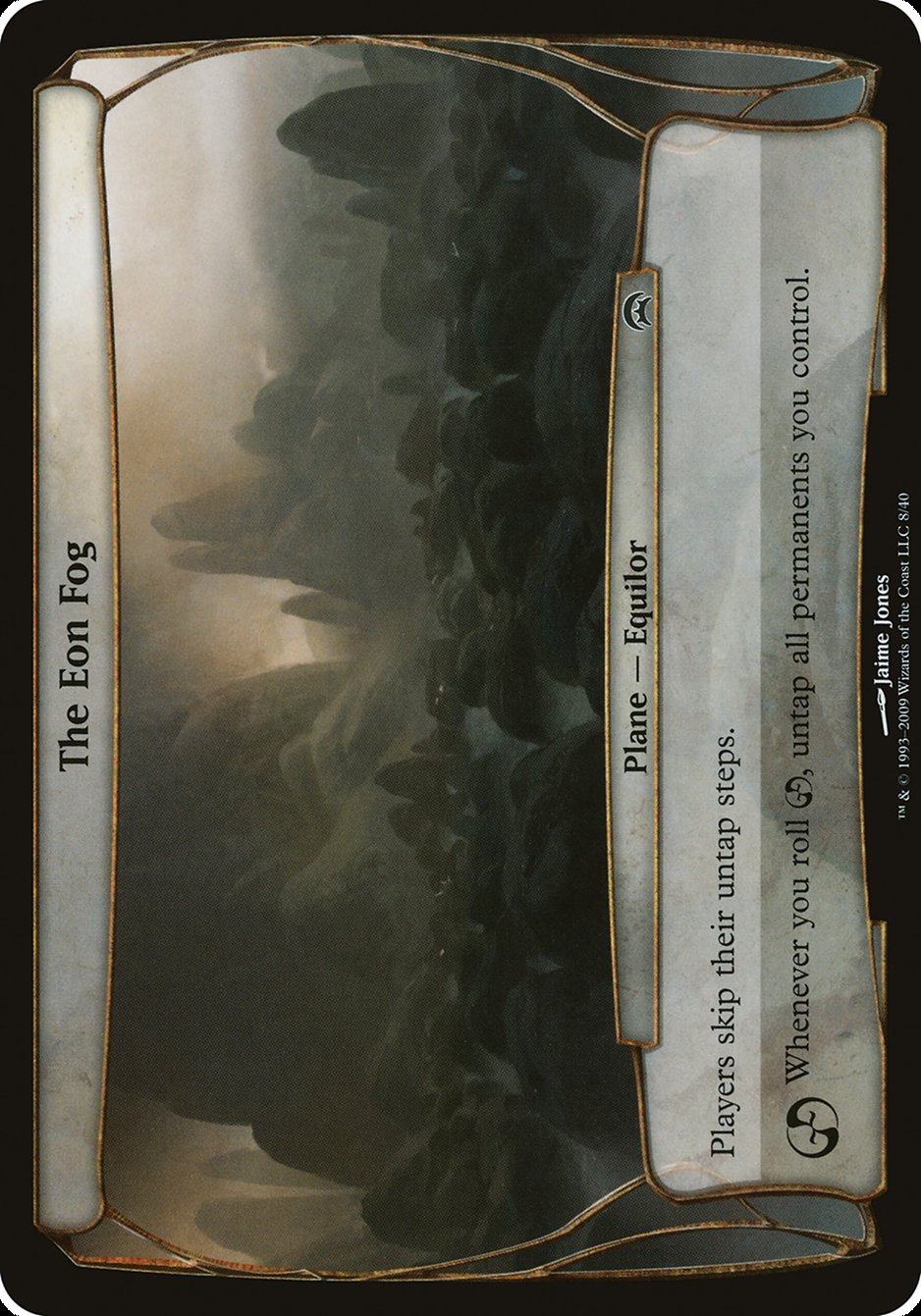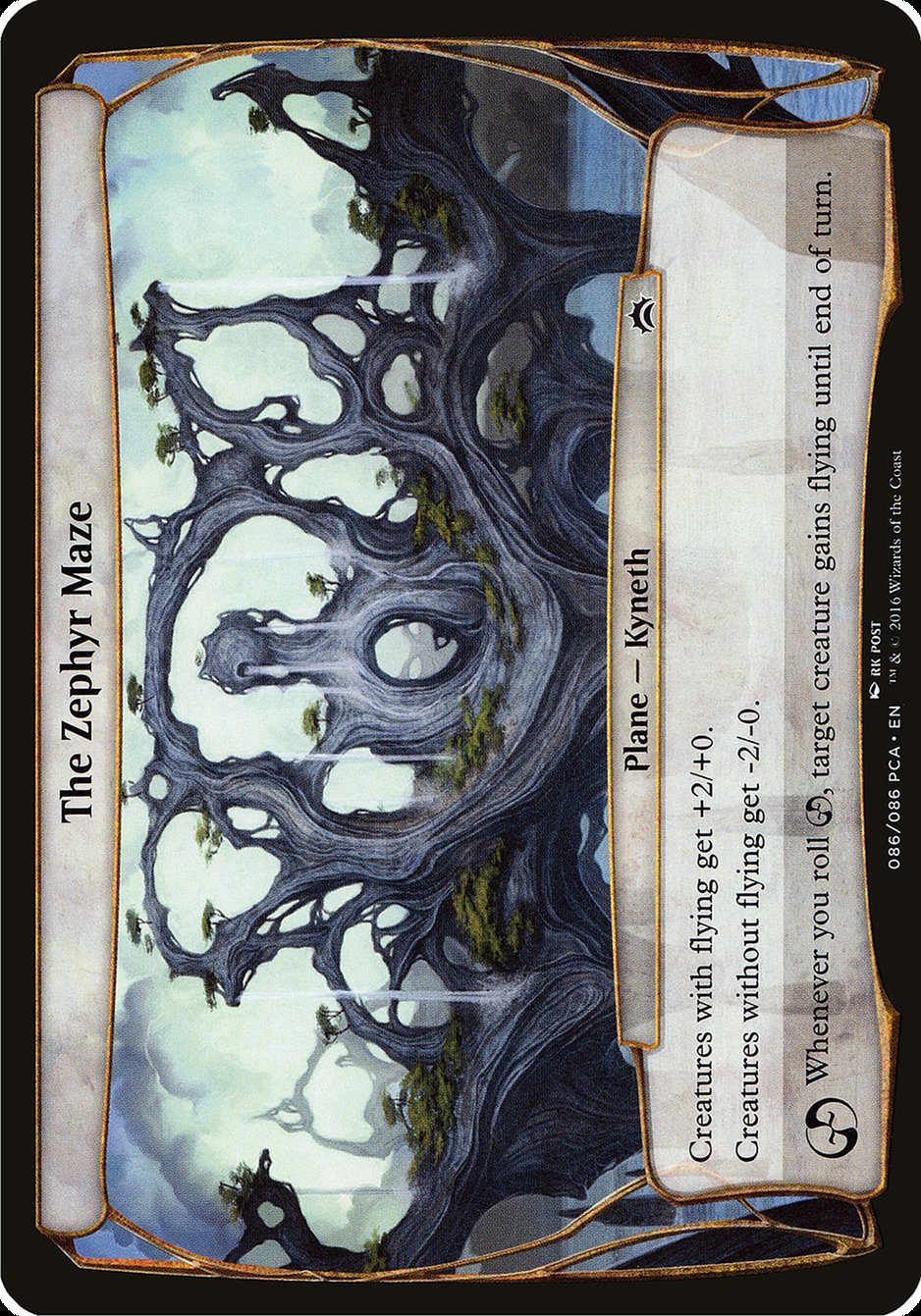Murasa MTG Card
| Card sets | Released in 2 setsSee all |
| Rarity | Common |
| Type | Plane — Zendikar |
Text of card
Whenever a nontoken creature enters the battlefield, its controller may search his or her library for a basic land card, put it onto the battlefield tapped, then shuffle his or her library. Whenever you roll chaos, target land becomes a 4/4 creature that's still a land.
Cards like Murasa
The allure of Murasa in Magic: The Gathering lies in its versatility as a land card. Within the sphere of land cards, Terramorphic Expanse stands out as a viable comparison. Both cards allow a player to search their library for a basic land card. Yet, Murasa distinguishes itself with a special edge—the basic land enters the battlefield untapped, providing instant access to mana.
Another close relative in terms of function is Evolving Wilds. Much like Murasa, this land offers the chance to shuffle your deck, which can be a subtle but strategic play. The distinction lies in the fact that the land fetched with Evolving Wilds enters the battlefield tapped, delaying the immediate gain of mana and potentially impacting the tempo of the game.
Examining the benefits and caveats of each card, Murasa holds a unique position. Its capacity to untap the fetched land is a small, yet critical advantage that can have significant implications on the pace and flexibility of your gameplay within Magic: The Gathering.
Cards similar to Murasa by color, type and mana cost
Card Pros
Card Advantage: Murasa, when played, enables retrieval of a key card from the graveyard, directly benefiting your hand and refining your deck’s strategy mid-game.
Resource Acceleration: This card ensures a smoother gameplay by potentially returning a land to your hand, thus speeding up your mana base development and allowing for quicker deployment of high-cost cards.
Instant Speed: Its ability to be cast at instant speed offers a tactical edge, giving you the flexibility to respond to opponents’ actions or end-of-turn situations, making the most of unspent mana and unexpected game states.
Card Cons
Discard Requirement: One aspect of Murasa cards in Magic the Gathering that might deter some players is the discard requirement attached to certain spells. This trade-off forces you to give up another potential play or resource, which calls for a careful calculation of cost versus benefit during gameplay.
Specific Mana Cost: Murasa cards often come with a specific mana cost combination that can demand a solid base of green mana within your deck. This reliance narrows down deck-building options and may make it harder to maintain a flexible mana base—particularly in multicolored deck configurations where every mana count is crucial.
Comparatively High Mana Cost: Another challenge presented by some Murasa cards is their higher mana costs in relation to their effects. While they can be powerful, these cards might compete for space with others that give a more immediate or cost-efficient advantage. Setting up the necessary mana and waiting for the right moment can be a setback if faster-paced strategies overrun you.
Reasons to Include Murasa in Your Collection
Versatility: Murasa cards often provide flexible solutions to in-game situations. Whether you’re looking to return creatures from your graveyard to your hand or seeking land interaction, Murasa spells accommodate various playstyles and fit into multiple deck archetypes.
Combo Potential: With Murasa’s ability to retrieve key pieces from the graveyard, it easily fits into combo decks seeking to assemble a winning mechanism. These cards can be critical in recovering from disruption or simply reusing valuable combo parts.
Meta-Relevance: Depending on the current competitive environment, having access to recursion and utility lands can be a game-changer. Murasa cards hold their value and relevance, particularly when facing decks that rely heavily on graveyard strategies or when the format slows down, allowing for longer, more strategic gameplay.
How to beat
The Murasa card in Magic the Gathering presents unique challenges on the battlefield. This powerful card, often associated with retrieving other cards from the graveyard, can turn the tide of a game by giving players a second chance with their most impactful spells or creatures. However, there are strategic ways to counteract Murasa’s influence.
One effective method is utilizing graveyard hate cards that exile or restrict interactions with the graveyard, like Scavenging Ooze or Leyline of the Void. Directly countering the spells when they are on the stack with cards like Negate or Dovin’s Veto can also prevent Murasa’s effect from resolving. Additionally, playing aggressively to pressure your opponent before they can stabilize and leverage Murasa’s benefits contributes to a winning strategy. It’s also essential to manage your own resources wisely and maintain a proactive stance, ensuring you are adequately prepared to disrupt your opponent’s attempts to gain an advantage from their graveyard synergies.
In summary, while the Murasa card has the potential to significantly impact the game, there are multiple tactics players can adapt to mitigate its strength and retain control over the match.
Where to buy
If you're looking to purchase Murasa MTG card by a specific set like Planechase Planes and Planechase Anthology Planes, there are several reliable options to consider. One of the primary sources is your local game store, where you can often find booster packs, individual cards, and preconstructed decks from current and some past sets. They often offer the added benefit of a community where you can trade with other players.
For a broader inventory, particularly of older sets, online marketplaces like TCGPlayer, Card Kingdom and Card Market offer extensive selections and allow you to search for cards from specific sets. Larger e-commerce platforms like eBay and Amazon also have listings from various sellers, which can be a good place to look for sealed product and rare finds.
Additionally, Magic’s official site often has a store locator and retailer lists for finding Wizards of the Coast licensed products. Remember to check for authenticity and the condition of the cards when purchasing, especially from individual sellers on larger marketplaces.
Below is a list of some store websites where you can buy the Murasa and other MTG cards:
 BUY NOW
BUY NOW BurnMana is an official partner of TCGPlayer
- eBay
- Card Kingdom
- Card Market
- Star City Games
- CoolStuffInc
- MTG Mint Card
- Hareruya
- Troll and Toad
- ABU Games
- Card Hoarder Magic Online
- MTGO Traders Magic Online
See MTG Products
Printings
The Murasa Magic the Gathering card was released in 2 different sets between 2009-09-04 and 2018-12-25. Illustrated by Jung Park.
| # | Released | Name | Code | Symbol | Number | Frame | Layout | Border | Artist |
|---|---|---|---|---|---|---|---|---|---|
| 1 | 2009-09-04 | Planechase Planes | OHOP | 25 | 2003 | Planar | Black | Jung Park | |
| 2 | 2018-12-25 | Planechase Anthology Planes | OPCA | 53 | 2015 | Planar | Black | Jung Park |
Rules and information
The reference guide for Magic: The Gathering Murasa card rulings provides official rulings, any errata issued, as well as a record of all the functional modifications that have occurred.
| Date | Text |
|---|---|
| 2009-10-01 | A face-up plane card that’s turned face down becomes a new object with no relation to its previous existence. In particular, it loses all counters it may have had. |
| 2009-10-01 | A plane card is treated as if its text box included “When you roll {PW}, put this card on the bottom of its owner’s planar deck face down, then move the top card of your planar deck off that planar deck and turn it face up.” This is called the “planeswalking ability.” |
| 2009-10-01 | If an ability of a plane refers to “you,” it’s referring to whoever the plane’s controller is at the time, not to the player that started the game with that plane card in their deck. Many abilities of plane cards affect all players, while many others affect only the planar controller, so read each ability carefully. |
| 2009-10-01 | The controller of a face-up plane card is the player designated as the “planar controller.” Normally, the planar controller is whoever the active player is. However, if the current planar controller would leave the game, instead the next player in turn order that wouldn’t leave the game becomes the planar controller, then the old planar controller leaves the game. The new planar controller retains that designation until they leave the game or a different player becomes the active player, whichever comes first. |
| 2009-10-01 | The effect of the chaos ability has no duration. The affected land will remain a creature until the end of the game, it leaves the battlefield, or some other effect changes its card types, whichever comes first. It doesn’t matter whether Murasa remains the face-up plane card. |
